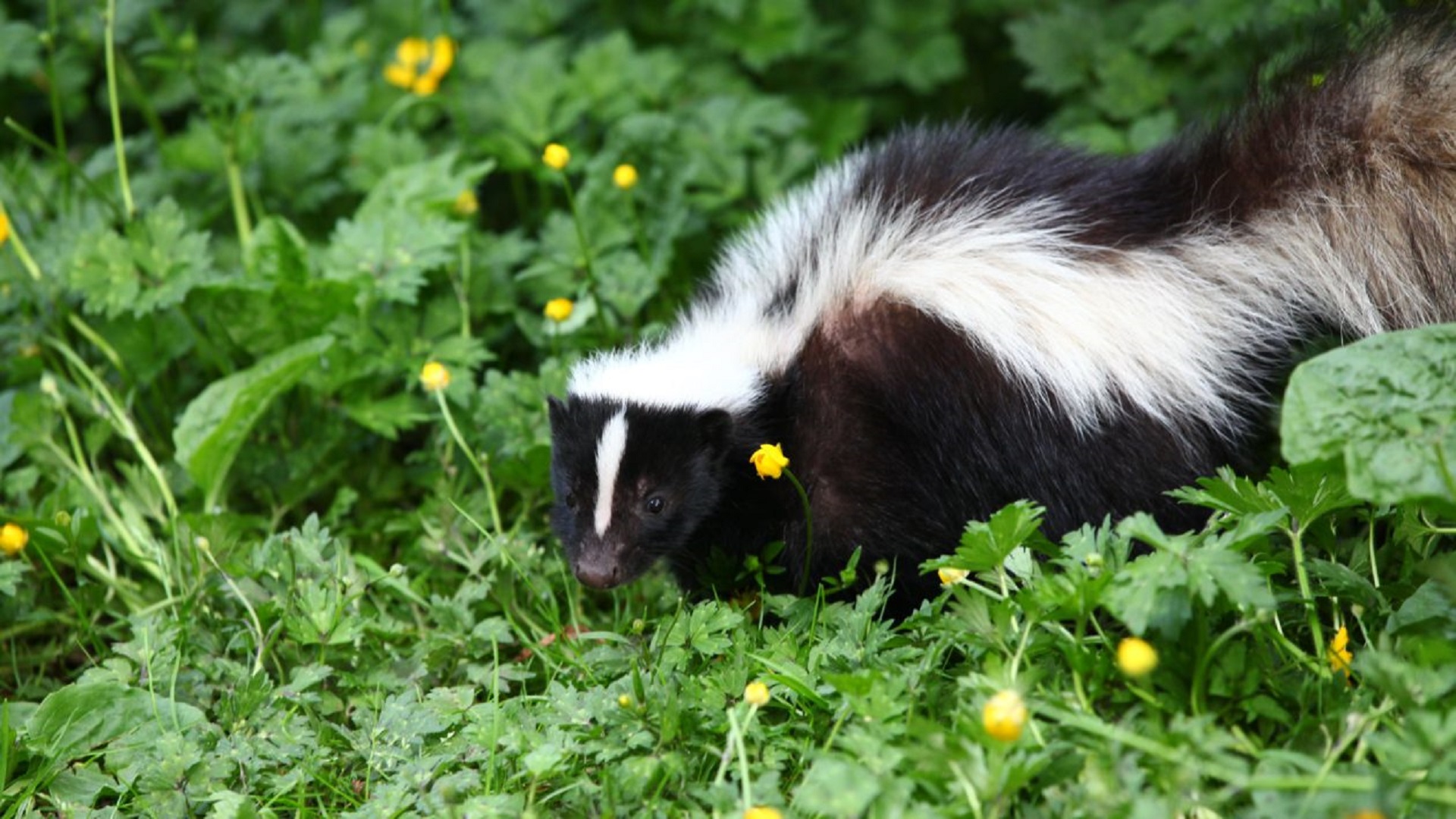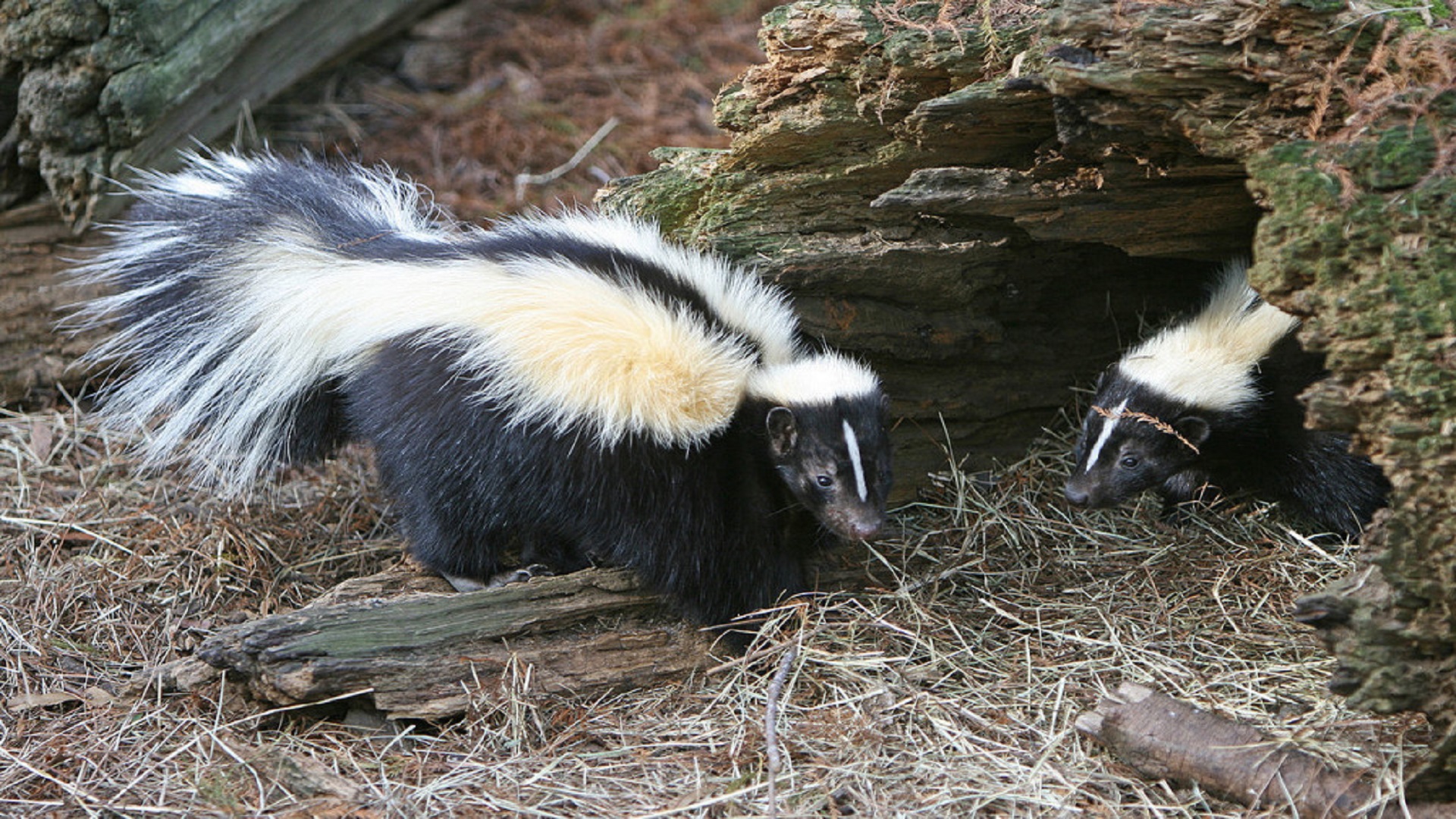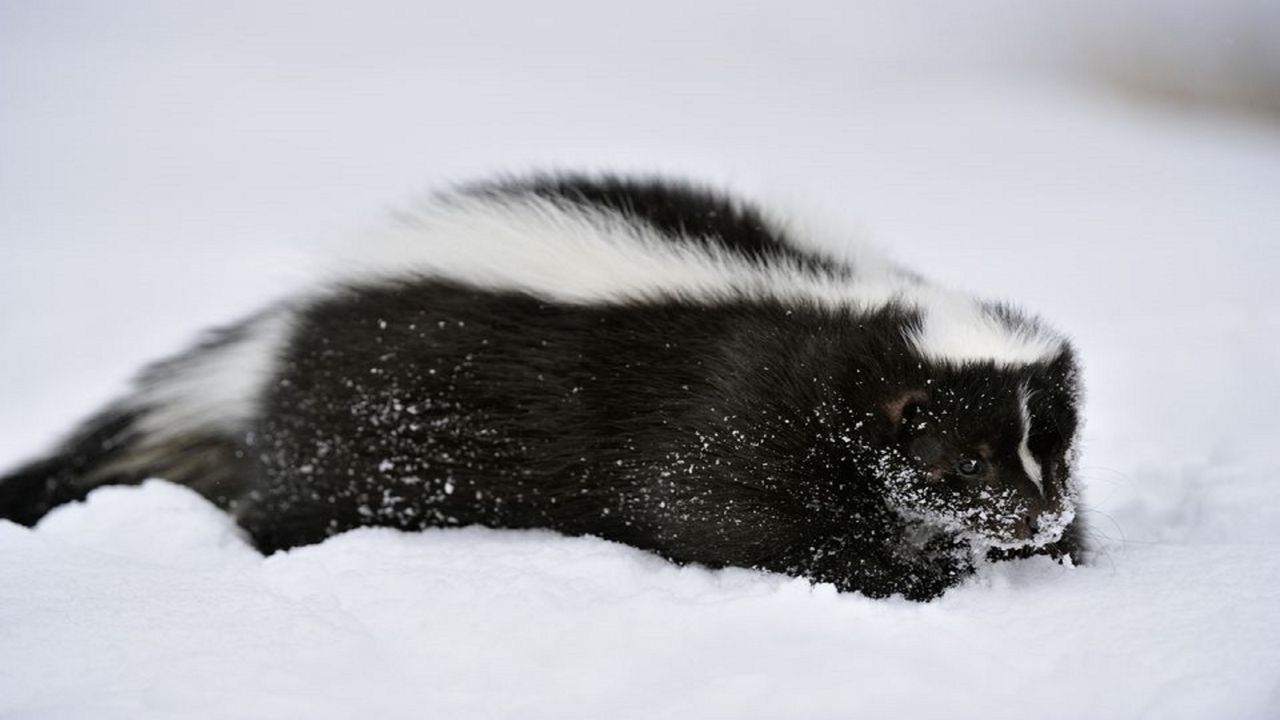You may have noticed that skunks have been much more active and present over the last few weeks. So, what have skunks been up to during the long winter?
In the summer, you always know when a skunk has been around, mainly because of their potent smell when they spray. However, in the winter, skunks make themselves much more scarce to wait out the winter cold, ice and snow.
While skunks do not fully hibernate, skunks enter at times of extreme cold or excessive snowfall a state called torpor. Torpor is a deep sleep that, like hibernation, slows the metabolism down, lowers the body temperature and breathing and allows the skunk to survive without being active.
In this state of deep sleep, the skunk will wake up from time to time. However, during the coldest part of the winter season, they will stay huddled in their dens and become pretty inactive, eat very little and sleep quite a bit.
Unlike squirrels, they do not accumulate and store food for the cold winter months. The skunk will spend the fall bulking up and eating as much as possible so it can stay warm during its winter dormancy.
This fall binge eating creates thick layers of fat that serve as winter jackets underneath the skin. The skunk will metabolize this fat during its deep rests, but at a much slower rate than in the summer months.

Skunks will wake up periodically throughout the winter, and if temperatures are warm enough (usually above 30), they may briefly leave their den to venture out to search for food. Winter food is much harder to come by, leaving skunks to feed on carrion, fruit, seeds, and sometimes the contributions from backyard compost piles.
And yes, in case you have smelled their strong, powerful scent during the winter, it's because skunks have to leave their den at least once in the winter to empty their scent glands.
Like me, you may have noticed some skunks in your neighborhood or on the side of the road now that we are in the beginning of spring. This is because skunk breeding season usually takes place in February and March.
So, if you see a skunk wandering around this time of year, they’re usually looking to mate. Most skunk babies, also known as kits, are born in April and May.
More often than not, skunks will stay in their burrows or dens until the first stretch of warmer weather in February. These warmer temperatures will draw them out of their dens to look for mates.
Male skunks are especially mobile as they search for female mates in their area.

The arrival of spring brings not only warmer weather but new food sources. In the warmer months, you’ll see these creatures roaming around much more often than you saw during the winter.



